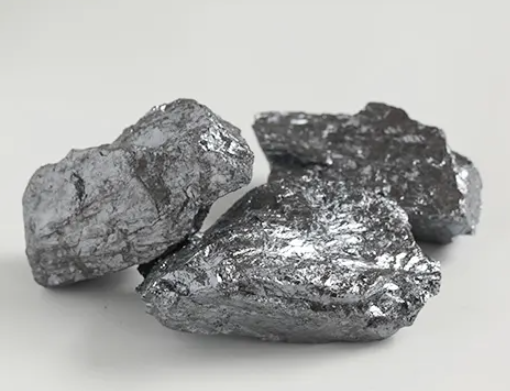Silicon, though often associated with semiconductors and electronics, isn't actually a metal in the traditional sense. It's a metalloid, which means it has properties of both metals and non-metals. Understanding whether silicon is a "good" metal requires exploring its unique characteristics and applications.

The Unique Nature of Silicon
Silicon (Si) is the second most abundant element in the Earth's crust, making up about 27.7% of it by weight. It is primarily found in nature as silicon dioxide (sand) and in various silicates. Its atomic number is 14, and it lies in group 14 of the periodic table, sharing this group with carbon, germanium, tin, and lead. Unlike traditional metals like iron or copper, silicon has a crystalline structure and behaves differently under various conditions.
Silicon in Electronics
Silicon's primary claim to fame is its use in the electronics industry. As a semiconductor, it has properties that are crucial for the operation of electronic devices. Silicon's ability to conduct electricity increases with temperature, unlike metals whose conductivity decreases as they get hotter. This property is essential for the functioning of diodes, transistors, and most modern electronic circuits.
Semiconductors: Silicon wafers are the foundation of integrated circuits and computer chips. Its semiconductor properties allow for precise control over electrical conductivity, making it indispensable in the tech industry.
Solar Cells: Silicon is also used in photovoltaic cells for solar panels. It efficiently converts sunlight into electricity, contributing to renewable energy solutions.
Silicon in Alloys and Composites
While not a metal, silicon plays a significant role in metallurgy. It is often added to metals to improve their properties:
Silicon Steel: Used in electrical transformers and motors, silicon steel has improved magnetic properties and reduced energy losses.
Aluminum-Silicon Alloys: These alloys are used in automotive and aerospace industries due to their lightweight and high-strength characteristics.
Is Silicon a "Good" Metal?
The term "good" can be subjective, depending on the criteria. If we consider conductivity, traditional metals like copper and aluminum are superior conductors of electricity. However, if we evaluate based on its role in modern technology and its versatility, silicon excels in ways that many metals do not.
Versatility: Silicon's ability to function both as a conductor and an insulator makes it incredibly versatile.
Abundance: Its abundance makes it cost-effective and sustainable for widespread use in various industries.
Technological Advancements: Silicon's role in electronics and renewable energy solutions underscores its importance in advancing technology and addressing environmental challenges.
